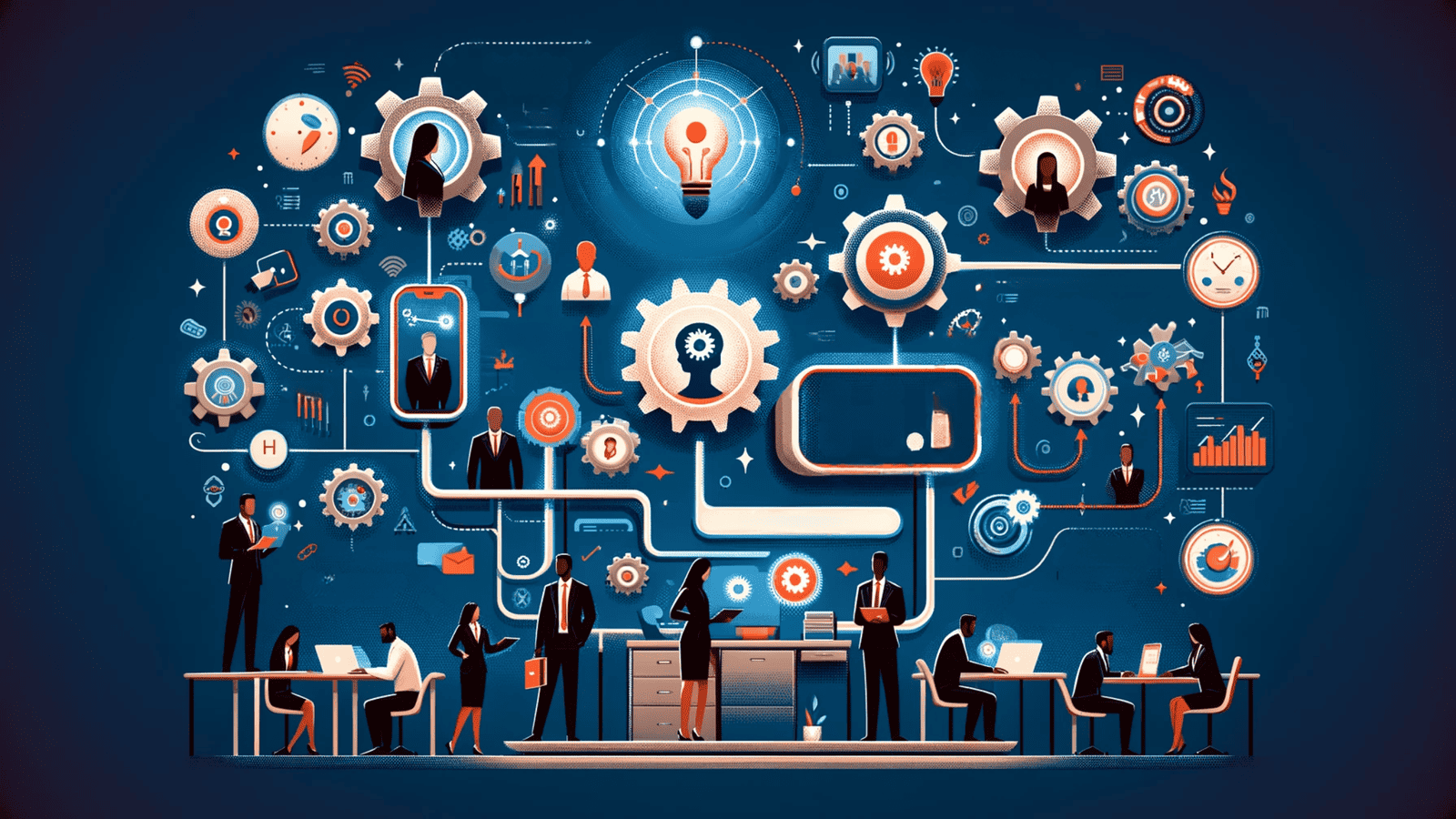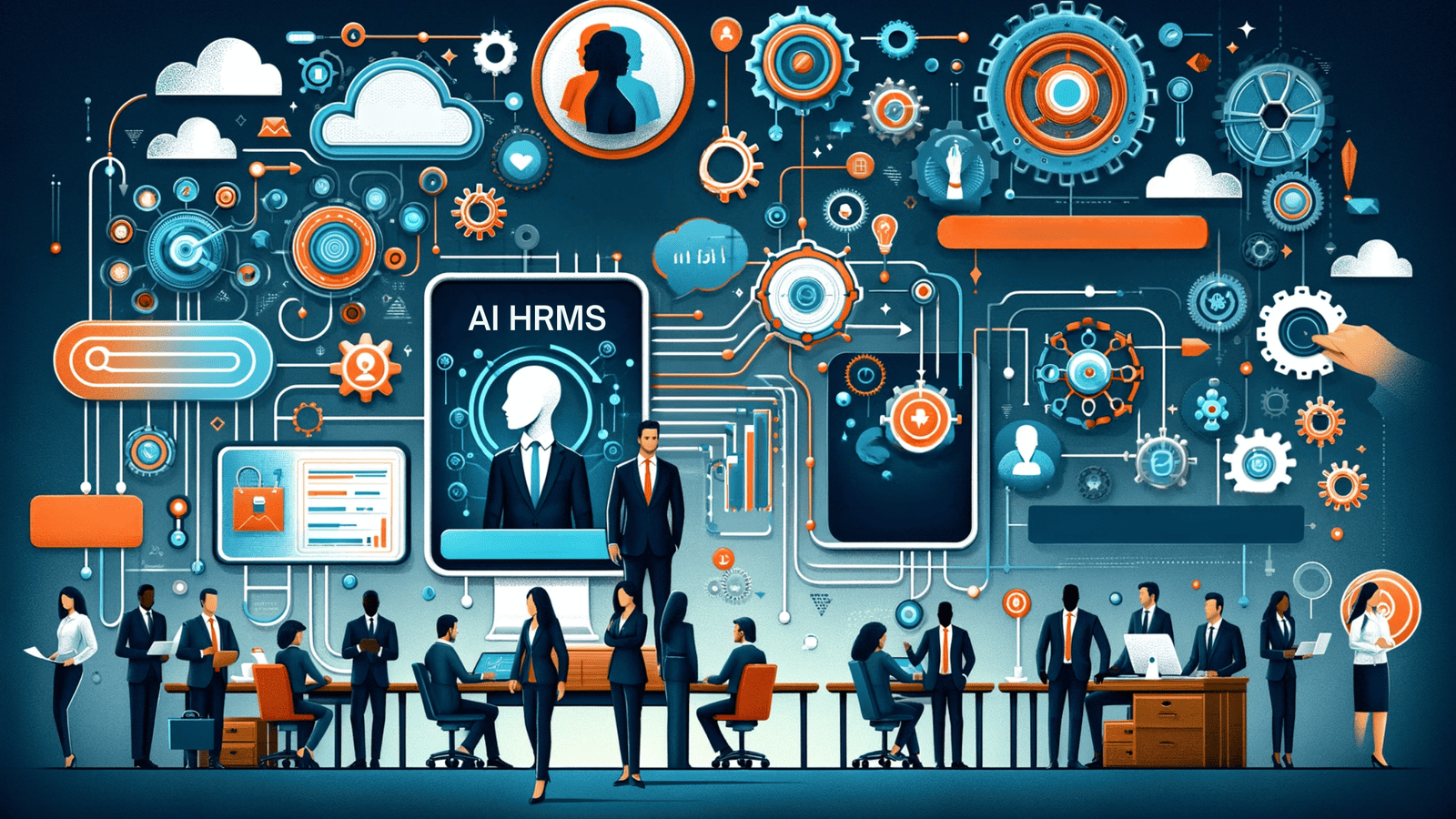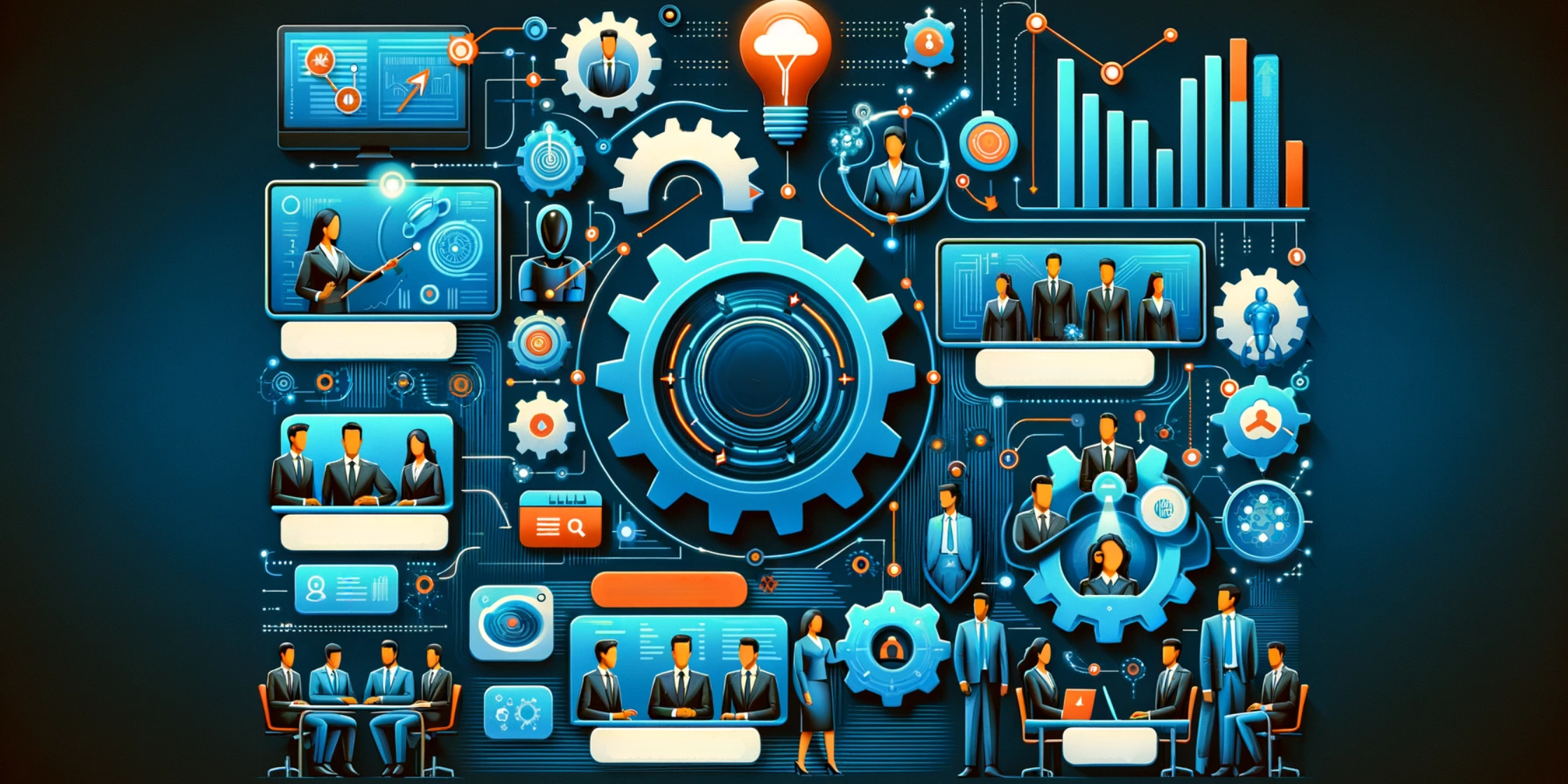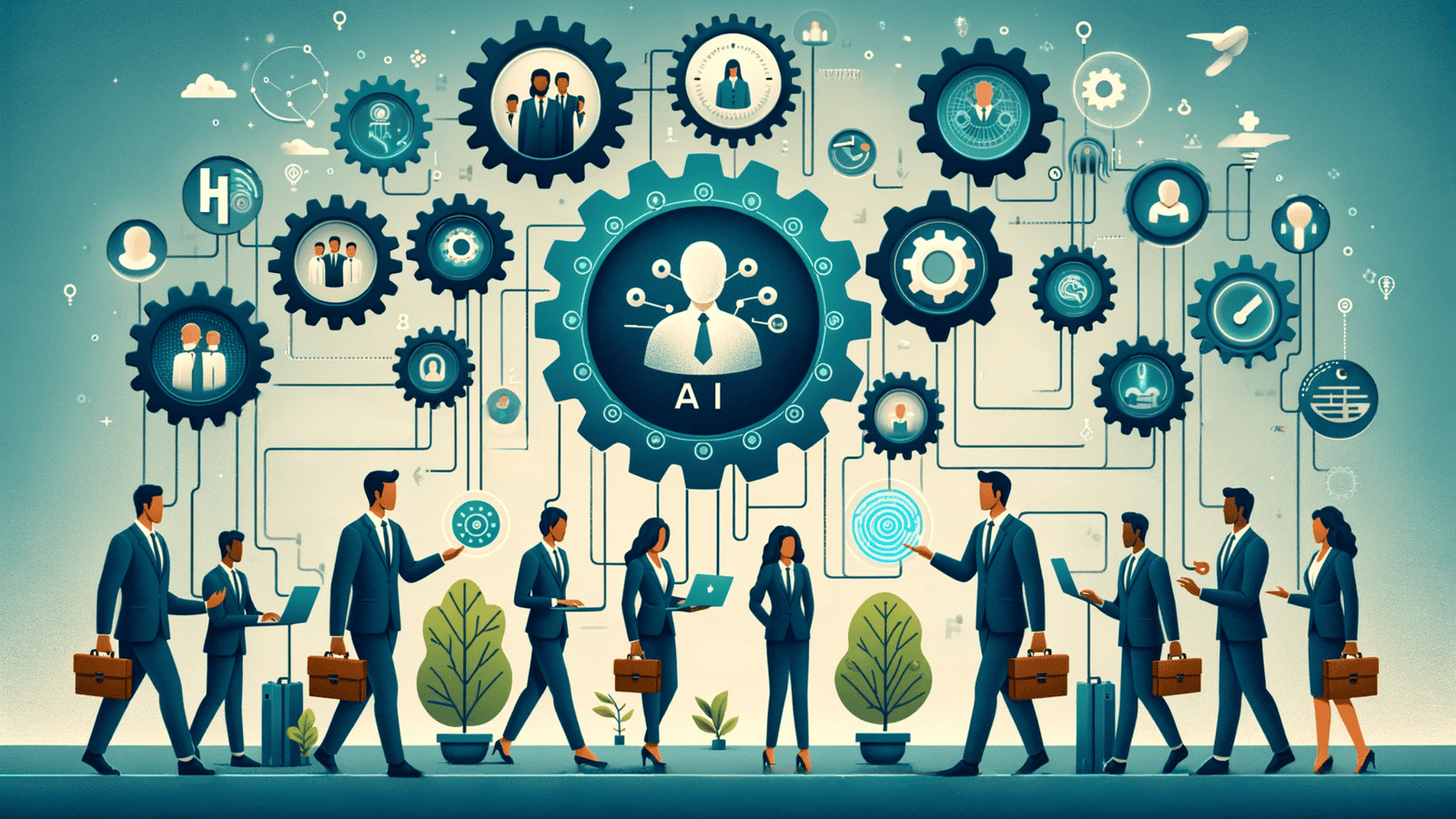Innovating HR processes with AI HRMS (Artificial Intelligence Human Resource Management System) stands as a revolutionary technology, transforming the landscape of human resource management. By leveraging AI capabilities, HRMS systems can automate various tasks and streamline operations, leading to increased efficiency and an improved employee experience. In this article, we will explore the concept of AI HRMS, its benefits and challenges, and how it can be used to transform different HR processes.
Key Takeaways
- AI HRMS automates HR processes, leading to increased efficiency and an improved employee experience.
- Automating recruitment and hiring with AI HRMS can save time and reduce bias.
- Enhancing employee onboarding through AI HRMS improves new employee integration and reduces administrative burden.
- AI HRMS can improve performance management by providing data-driven insights and facilitating continuous feedback.
- Streamlining leave and attendance management with AI HRMS reduces manual errors and improves accuracy.
Understanding AI HRMS

What is AI HRMS?
AI HRMS, which stands for Artificial Intelligence Human Resource Management Software, is a comprehensive solution designed to meet the HR needs of companies. It is a cloud-based platform that offers a wide range of functions that can be customized according to individual requirements.
One of the key features of AI HRMS is its ability to automate and streamline various HR processes, such as recruitment and hiring, employee onboarding, performance management, and leave and attendance management. By leveraging artificial intelligence and machine learning algorithms, AI HRMS enables organizations to optimize their HR operations and improve overall efficiency.
In addition to its automation capabilities, AI HRMS also ensures data security and privacy. It incorporates robust security measures to protect sensitive employee information and complies with data privacy regulations.
Implementing AI HRMS may come with its own challenges, such as resistance from employees and the need for adequate training and support. However, the benefits of AI HRMS, including increased productivity, improved decision-making, and enhanced employee experience, make it a valuable tool for transforming HR processes.
Benefits of AI HRMS
AI HRMS – Human Resource Management Software is designed for companies seeking an effective solution for their HR needs. Developed over decades of assisting with HR matters, we know the uphill struggle businesses face in retaining top talent, thereby leading to the creation of AI HRMS.
An embodiment of cloud-based HR management solutions, AI HRMS provides a myriad of comprehensive functions, easily customizable as per individual needs. Its application, though global, is specifically oriented towards supporting millions of small to medium-sized organizations faced with human resource challenges.
- Streamlined Recruitment and Hiring processes
- Enhanced Employee Onboarding experience
- Improved Performance Management
- Efficient Leave and Attendance Management
AI HRMS is the key to transforming HR processes, enabling companies to optimize their workforce and achieve greater efficiency and productivity.
Challenges of Implementing AI HRMS
Implementing an AI HRMS can present several challenges for organizations. One of the main challenges is resistance from employees who may be skeptical or fearful of the new technology. Organizations need to address these concerns and provide adequate training and support to help employees adapt to the changes.
Another challenge is the integration of AI HRMS with existing systems. Organizations may already have various HR processes and systems in place, and integrating AI HRMS with these systems can be complex and time-consuming.
Additionally, data security and privacy are major concerns when implementing AI HRMS. Organizations need to ensure that the system is secure and compliant with data privacy regulations to protect sensitive employee information.
To overcome these challenges, organizations can follow a few key strategies:
- Communicate the benefits of AI HRMS to employees and address any concerns or misconceptions they may have.
- Provide comprehensive training to employees to help them understand and use the AI HRMS effectively.
- Collaborate with IT and HR teams to ensure smooth integration of AI HRMS with existing systems.
- Implement robust data security measures to protect employee data and comply with data privacy regulations.
By addressing these challenges and implementing AI HRMS effectively, organizations can transform their HR processes and improve efficiency.
Transforming HR Processes with AI HRMS

Automating Recruitment and Hiring
Recruitment and hiring processes are crucial for any organization as they determine the quality of talent that joins the company. With AI HRMS, these processes can be automated, leading to more efficient and effective hiring. AI algorithms can analyze resumes, identify relevant skills and experience, and match candidates to job requirements. This not only saves time for HR professionals but also ensures that the best candidates are selected for each position.
To further streamline the recruitment and hiring process, organizations can implement a structured approach. This can include creating a standardized job description template, using pre-screening assessments to filter candidates, and conducting video interviews. By adopting these practices, organizations can ensure consistency, reduce bias, and make data-driven hiring decisions.
Additionally, AI HRMS can provide valuable insights and analytics on recruitment and hiring metrics. HR professionals can track key performance indicators such as time-to-fill, cost-per-hire, and quality of hire. These metrics can help identify areas for improvement and optimize the hiring process.
In summary, automating recruitment and hiring with AI HRMS can result in faster, more accurate candidate selection, improved efficiency, and data-driven decision-making.
Enhancing Employee Onboarding
Employee onboarding is a critical process that sets the tone for new hires’ experience in the organization. It involves providing them with the necessary information, resources, and support to quickly integrate into their roles and the company culture.
To enhance employee onboarding, our AI HRMS offers the following features:
- Customizable profile templates: New hires can easily create their profiles with all the required information, ensuring a smooth onboarding process.
- Modules for asset tracking and absence management: Our AI HRMS includes modules that help track and manage company assets assigned to new employees, as well as their leave and attendance records.
With these features, organizations can streamline the onboarding process, reduce administrative tasks, and ensure that new hires feel supported and prepared from day one.
Tip: Encourage new hires to explore the wellness videos and pamphlets available in our Employee Wellness program to promote their overall well-being during the onboarding period.
Improving Performance Management
Improving performance management is a crucial aspect of leveraging AI HRMS to its full potential. By automating performance evaluation processes, organizations can ensure a fair and consistent approach to assessing employee performance. This not only saves time but also reduces bias and subjectivity.
One effective way to enhance performance management is by implementing a 360-degree feedback system. This allows employees to receive feedback from multiple sources, including managers, peers, and subordinates. It provides a holistic view of an employee’s performance and encourages continuous improvement.
In addition, AI HRMS can analyze performance data to identify patterns and trends. This enables organizations to proactively address performance issues and provide targeted training and development opportunities.
To further optimize performance management, organizations can leverage AI algorithms to predict future performance based on historical data. This helps in identifying high-potential employees and designing personalized development plans.
Overall, AI HRMS offers significant opportunities to improve performance management and drive employee growth and development.
Streamlining Leave and Attendance Management
Streamlining leave and attendance management is a crucial aspect of HR processes that can greatly benefit from AI HRMS. By automating these tasks, organizations can reduce manual errors and save valuable time. Efficient leave and attendance management allows HR teams to accurately track employee absences, monitor attendance patterns, and ensure compliance with company policies.
Implementing AI HRMS for leave and attendance management offers several advantages:
- Improved accuracy: AI algorithms can accurately calculate leave balances, accruals, and deductions, reducing the risk of errors.
- Enhanced efficiency: Automation eliminates the need for manual data entry and reduces administrative burden.
- Streamlined processes: AI HRMS can handle complex leave policies, such as different types of leaves and eligibility criteria, ensuring compliance and consistency.
Tip: Regularly communicate the benefits of AI HRMS to employees and provide training to ensure a smooth transition and adoption.
Ensuring Data Security and Privacy
Data Security Measures in AI HRMS
Data security is a critical aspect of implementing AI HRMS. Organizations must take proactive measures to protect sensitive employee data from unauthorized access or breaches. Encryption is one of the key security measures that can be implemented to safeguard data. It ensures that data is encoded and can only be accessed by authorized individuals.
In addition to encryption, organizations should also implement access controls to restrict data access based on user roles and responsibilities. This helps prevent unauthorized individuals from accessing sensitive information.
To further enhance data security, regular data backups should be performed to ensure that data can be recovered in the event of a system failure or data loss. These backups should be stored in secure locations and tested periodically to ensure their integrity.
It is also important to conduct regular security audits to identify any vulnerabilities or weaknesses in the AI HRMS system. These audits can help organizations identify and address potential security risks before they are exploited by malicious actors.
Overall, implementing robust data security measures is essential to protect sensitive employee data and maintain the trust of employees in the AI HRMS system.
Compliance with Data Privacy Regulations
Ensuring compliance with data privacy regulations is crucial when implementing an AI HRMS. Organizations must prioritize the protection of employee data and maintain the highest standards of privacy.
To achieve this, organizations can implement the following measures:
- Data Encryption: Encrypting sensitive employee data ensures that it remains secure and protected from unauthorized access.
- Access Controls: Implementing strict access controls ensures that only authorized personnel have access to employee data.
- Data Minimization: Collecting and storing only the necessary employee data minimizes the risk of data breaches.
- Regular Audits: Conducting regular audits helps identify any vulnerabilities or gaps in data privacy practices.
By adhering to these data privacy regulations, organizations can build trust with their employees and demonstrate their commitment to protecting their personal information.
Overcoming Resistance to AI HRMS Adoption

Addressing Employee Concerns
When implementing AI HRMS, it is important to address employee concerns to ensure a smooth transition. Communication plays a crucial role in alleviating any fears or uncertainties. Here are some key steps to address employee concerns:
- Provide clear explanations: Clearly explain the purpose and benefits of AI HRMS to employees, emphasizing how it will enhance their work experience.
- Address job security concerns: Assure employees that AI HRMS is not meant to replace their jobs, but rather to streamline processes and improve efficiency.
- Offer training and support: Provide comprehensive training and ongoing support to help employees adapt to the new system.
Tip: Encourage open dialogue and feedback from employees to address any concerns or misconceptions they may have.
By addressing employee concerns proactively, organizations can foster a positive attitude towards AI HRMS and ensure successful adoption.
Providing Adequate Training and Support
When implementing AI HRMS, it is crucial to provide adequate training and support to employees. This ensures a smooth transition and helps employees adapt to the new system effectively. Here are some key considerations:
- Conduct comprehensive training sessions to familiarize employees with the AI HRMS platform.
- Provide hands-on practice opportunities to reinforce learning and build confidence.
- Assign dedicated support personnel who can address any queries or concerns.
Tip: Encourage employees to actively participate in the training process and provide feedback. This will help identify areas that require further clarification or improvement.
Remember, the success of AI HRMS implementation relies on the willingness and readiness of employees to embrace the change. By providing adequate training and support, organizations can ensure a successful transition and maximize the benefits of AI HRMS.
Overcoming Resistance to AI HRMS Adoption
Conclusion
In conclusion, the integration of AI technology into HR processes has the potential to revolutionize the way organizations manage their human resources. By leveraging AI-powered HRMS systems, companies can streamline their recruitment, onboarding, performance management, and employee engagement processes, leading to increased efficiency and productivity. Additionally, AI HRMS can provide valuable insights and predictive analytics to help HR professionals make data-driven decisions and improve overall workforce management. As organizations continue to embrace digital transformation, implementing AI HRMS will become essential for staying competitive in the modern business landscape.
Frequently Asked Questions
What is AI HRMS?
AI HRMS stands for Artificial Intelligence Human Resource Management System. It is a software solution that utilizes AI technologies to automate and optimize various HR processes.
What are the benefits of AI HRMS?
AI HRMS offers several benefits, including increased efficiency and accuracy in HR tasks, improved decision-making through data analysis, enhanced employee experience, and cost savings.
What are the challenges of implementing AI HRMS?
Implementing AI HRMS can pose challenges such as resistance to change from employees, integration with existing systems, data security concerns, and the need for proper training and support.
How does AI HRMS automate recruitment and hiring?
AI HRMS automates recruitment and hiring processes by using AI algorithms to screen resumes, conduct candidate assessments, schedule interviews, and provide data-driven insights for decision-making.
How does AI HRMS enhance employee onboarding?
AI HRMS streamlines the onboarding process by automating administrative tasks, providing personalized onboarding plans, and facilitating communication and collaboration between new hires and HR teams.
What are the data security measures in AI HRMS?
AI HRMS incorporates various data security measures such as encryption, access controls, regular backups, and compliance with industry standards and regulations to protect sensitive HR data.









